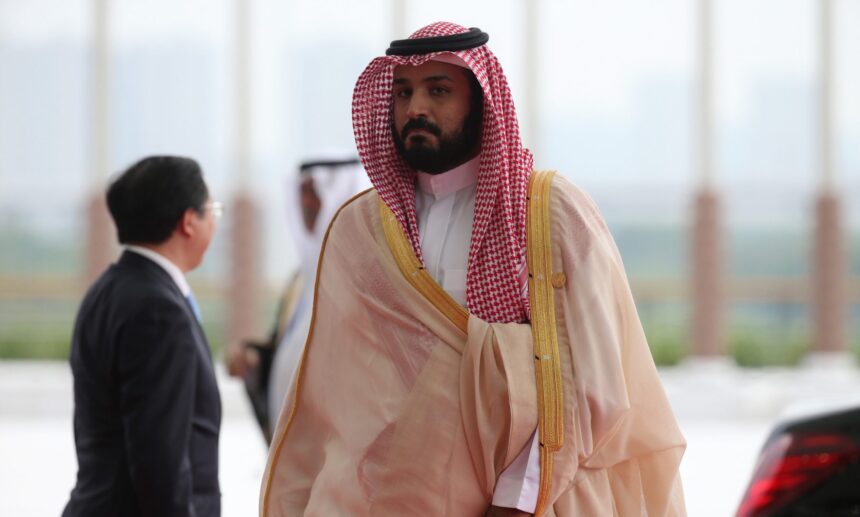Summary by Geopolist | Istanbul Center for Geopolitics:
Gulf investments in China have surged, driven by strategic partnerships and mutual economic interests. The GCC countries are major trading partners with China, with trade reaching $315.8 billion in 2022. Investments by Gulf companies in China have grown over 1000% year-on-year, focusing on petrochemicals and clean energy. This trend highlights the GCC’s effort to diversify their economies and reduce reliance on fossil fuels, aligning with China’s Belt and Road Initiative. Despite potential U.S. concerns, GCC-China ties are expected to strengthen, influencing global investment patterns.
Read the full article below.
Gulf investments in China have expanded significantly over the past few years, driven by strategic partnerships and mutual economic interests. This expansion is not a mere coincidence, but rather the result of careful planning and strategic foresight. For Saudi Arabia and the rest of the countries of the Gulf Cooperation Council (GCC), continued economic diversification plans take absolute precedence in their policy planning. China, and much of the rest of Asia, are seen as critical components of these vision plans which are coming to fruition.
Collectively and individually, the six GCC member states (Bahrain, Kuwait, Oman, Qatar, Saudi Arabia, and the United Arab Emirates) rank among China’s largest trading partners in the Middle East, with a total trade volume of $315.8 billion in 2022. The volume of the GCC countries’ GDP amounts to $2.4 trillion compared to China’s which reached $17.7 trillion. The GCC countries are the ninth-largest economy in the world while China is considered the second, making cooperation between the two regions pivotal to the global economy.
Comprehensive strategic partnerships, multilateral action plans, joint initiatives, and perhaps soon, a China-GCC free-trade agreement, reinforce this ascending trajectory. During the China-GCC Forum for Industries and Investment held in Xiamen on May 23, 2024, President Xi Jinping stated that deepening industrial and investment cooperation between the GCC countries and China will help reinforce the alignment between the Belt and Road Initiative and the development strategies, visions, and plans of GCC countries.
The strengthening of the GCC-Sino cooperation can be further exemplified as around 90% of the terms of the free trade negotiations between the GCC member countries and China have been agreed on, as stated by Chen Weiqing, China’s Ambassador to Saudi Arabia. Both sides have made progress regarding the deal, with the first session of the meeting of economic and trade ministers from China and the GCC states being held in Guangzhou in October 2023 after ten rounds of technical meetings and negotiations.
In addition, the value of acquisitions and investments by Gulf companies in China has climbed more than 1000% year-on-year to $5.3 billion in 2023, much of this growth has been in corporate-level and joint petrochemical projects. During the 10th Arab-China Business Conference that was held in Riyadh in June 2023, it was mentioned that China is set to receive between $1-2 trillion in investments from the top Gulf sovereign wealth funds (SWFs) by 2030 as they look to Asia, particularly China, amid a rise in their investment capital. Saudi Arabia’s Minister of Investment, H.E. Khalid Al Falih, affirmed during the forum that economic ties between China and the Arab world, especially with Saudi Arabia, are growing, and there is room for further growth, particularly in capital market relations between Beijing and Riyadh. Acquisitions by GCC SWFs in China increased to over $2.3 billion in 2023, up from $100 million the previous year. UAE President, His Highness Sheikh Mohamed bin Zayed Al Nahyan, visited China on May 30, 2024, for the China-Arab States Cooperation Forum. The visit was held within the framework of the Comprehensive Strategic Partnership between the UAE and China as it marks the 40th anniversary of the establishment of diplomatic relations between the two countries.
The number of Gulf entities applying for and receiving the Qualified Foreign Institutional Investor (QFII) certification increased from three to nine in 2021–2022, surpassing the previous decade’s gradual and upward trend in the size and diversity of investments of well-established GCC SWFs in China. Although the Saudi SWF—despite its global ambitions and reach—arguably “entered” the Chinese equity market in 2016 through its partnership with SoftBank, it is only now starting to deploy capital directly into China. In February 2022, Saudi Arabia’s Public Investment Fund (PIF) opened an office in Hong Kong, demonstrating its intentions to deepen its ties with Beijing. The Saudi Tadawul Group, which oversees the Saudi stock exchange, allegedly started preliminary talks about cross-listing with the exchanges in Hong Kong, Shanghai, and Shenzhen next year. Such agreements may facilitate greater Gulf SWFs and other GCC-based public and private funds access to the Chinese equity market.
These efforts are indicative of a larger trend where Gulf countries are diversifying their investment portfolios and reducing dependence on fossil fuels. By targeting sectors with high growth potential, these investments not only seek financial returns but also aim to foster innovation and economic diversification in both regions. The GCC’s ambitions to develop clean energy opportunities bind the region tighter to China, given that Beijing is the dominant global player in the clean energy supply chain, controlling significant shares in batteries, wind power, and lithium production. According to UN Comtrade data, China’s lithium battery exports to the GCC grew 26% between 2021 and 2022, with a 99% increase in the first three-quarters of 2023. The market opportunity in renewable energy is driven by national visions and the GCC’s quest for economic diversification. Chinese enterprises, attracted to the Gulf (such as in Saudi Arabia) by the shift from traditional governmental project models to public-private partnerships, claim that the involvement of Chinese businesses generates significant societal benefits.
The determination of the GCC states to expand business and economic ties with China will undoubtedly be impacted by the U.S.-GCC ties. Yet, despite current U.S. suggestions that broadening GCC-China ties could come with consequences, GCC countries will continue to move forward with developing their relations with China. Indeed, the growing economic relationship between the Gulf and China underscores an increasing trajectory in global investment patterns, where traditional Western-centric investment strategies are being complemented by Asia-Middle East partnerships. These collaborations are expected to play a crucial role in shaping the economic landscape of both regions in the coming years.
Yet, Gulf investments in China should not be viewed as a strategic pivot away from other regions, but rather as an effort to enhance the Gulf countries’ focus on Asia. This trend is characterized by a mutual interest in economic diversification and high-growth sectors. The rationale behind these investments is not just to capitalize on the robust growth potential of the Asian markets, particularly China, but also to foster a mutually beneficial relationship. This approach allows Gulf investors to tap into new opportunities in rapidly developing industries, fostering innovation and economic growth on both sides. Although there has been a gradual upward trajectory in both the scale and diversity of investments by the Gulf funds and a growing engagement with the Chinese equity market, especially into technological and other emerging sectors that align with Gulf interests, it must be noted that this does not presage a transformation in China-Gulf relations. Rather, the increasing complexity of their economic ties reflects a broader global shift towards Asia as a vital economic hub. Rather than representing a strategic realignment, Gulf investments in China signify a natural progression towards deepening economic ties with a region that is increasingly influential in the global economy. Overall, Gulf investments in China illustrate a pragmatic approach to leveraging growth opportunities in Asia while maintaining a balanced global investment strategy and they pave the way for a promising future for global economic relations.
Source: ISPI







